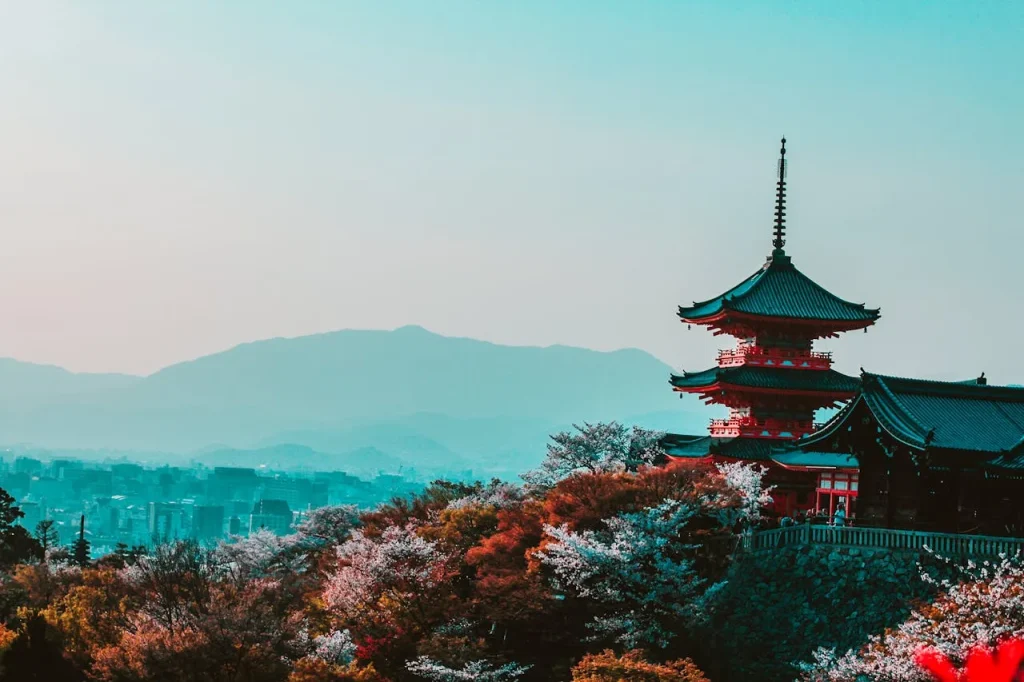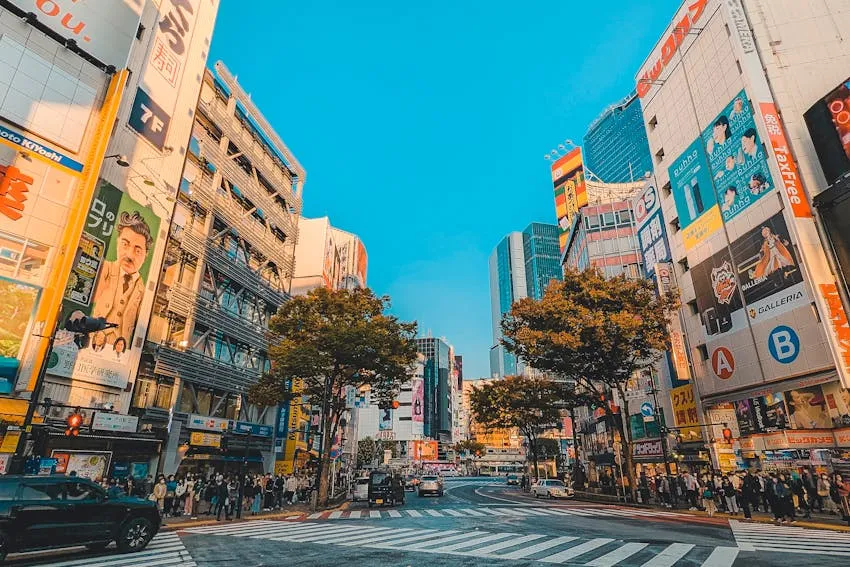20 Things You Should Know Before Visiting Japan - Tips for Traveling & Living in Japan

Foreigners who come to Japan for various reasons, such as travel, work, or study abroad, may be confused by Japan's unique rules and manners. But don't worry!
In this article, we will introduce 20 rules and manners that you should know before visiting or just starting to live in Japan, as well as things you should know to enjoy your life in Japan more.
There are many other things you should know, but we have picked out the ones we think are particularly important. Please refer to them as tips for a comfortable stay in Japan.
▼Goandup Picks Click here for recommended articles!
- Required before studying abroad! Goandup Nihongo+, an online Japanese language learning service
- This page introduces services for foreigners who wish to study in Japan or improve their Japanese language skills to learn Japanese online.
- Goandup Salon" community for foreigners living in Japan
- We introduce an online community where foreigners living in Japan can exchange information and interact with each other to support their life in Japan.
- Goandup Study" supports foreigners who want to study in Japan.
- This section introduces study abroad support services that provide comprehensive support to foreigners who wish to study in Japan, from preparation for study abroad to living in Japan.
- Where can I buy a prepaid SIM in Japan? Recommended SIM cards for foreigners are also introduced.
- How to purchase a prepaid SIM and suitable SIM cards for foreigners.
- The Complete Guide to Pocket Wi-Fi in Japan for Foreigners!
- We introduce how to select and recommend pocket Wi-Fi products that can be used conveniently in Japan.
- The Complete Guide to Finding a Job in Japan! Finding a job, changing jobs, and part-time work for foreigners
- This site provides foreigners who want to work in Japan with comprehensive information on how to find a job, recommended job sites, and other information necessary to find a job.
20 Things You Should Know Before Visiting Japan

Here are 20 things that foreigners should know when coming to Japan. There are many more things you should know, but we have picked out the ones we think are especially important.
1. take off shoes in houses and traditional buildings
In Japan, shoes are removed when entering a house. It is impolite to enter a house with shoes on, so be careful. In restaurants, shoes may or may not be removed. If there is a high step between the entrance and the hallway, you are likely to take off your shoes.
It is also advisable to wear shoes that are easy to remove when touring traditional architectural structures such as shrines, temples, and samurai residences in Kyoto and other cities, as you may have to take off your shoes.
2. no need to tip
In Japan, it is not necessary to tip waiters and other waiters in restaurants. Tipping is included in their salary, so it is fine.
However, some upscale restaurants, izakaya (Japanese style pubs), bars, and other establishments that serve alcoholic beverages often charge a service fee and a kind of table charge called otsukoshi (appetizer). It is advisable to check the restaurant's website in advance.
3. cash should be kept on hand at all times
There are many places in Japan that accept credit cards and electronic money, but not as many as in other countries. In particular, the more you go to the countryside, old-fashioned stores, and budget stores, the more likely you are to be able to use only cash.
You should also keep cash with you at all times, as there are not many ATMs where you can withdraw money from foreign banks.
4. cars drive on the left side of the road
In Japan, cars drive on the left side of the road, so those who drive on the right side, such as in the U.S., may feel confused at first. However, after living in Japan for a while, you will get used to it naturally.
In addition to cars, bicycles and electric kickboards are also required to drive on the left side of the road. Please note that riding on the right side of the road may result in a fine.
5. few trash cans outside
To reduce the cost of garbage collection and to prevent suspicious items from being put in garbage cans, there are almost no garbage cans outside in Japan. Garbage is carried in bags or other containers while outside, and then discarded upon returning to one's home or hotel.
Although small trash cans may be available at convenience stores and public restrooms, it is basically good manners to take your own trash home with you.
6. not many Wi-Fi spots
There are many Wi-Fi spots in Japan, but not as many as in other countries. Renting a mobile router is recommended when traveling in Japan.
In addition to mobile routers, there are other means of purchasing SIM cards. Gather information in advance and choose the method that suits you best.
RELATED:
▶︎ The Complete Guide to Pocket Wi-Fi in Japan for Foreigners!
▶︎ Introducing Japanese unlimited data SIM cards recommended for foreigners!
7. Little foreign language support outside of cities and tourist areas.
Note that while there is plenty of foreign language support in Tokyo and other urban areas and tourist destinations frequented by foreigners, there is not much in rural and regional areas.
English is often provided for signs, station names, and train announcements, but there may be no English-speaking staff. It is a good idea to have a translation application installed.
8. English is understandable if spoken slowly and simply.
Most Japanese are not very good at English, but since they take English classes at school, there is a good chance that they can understand you if you speak slowly and simply.
However, some people, especially the elderly, are not comfortable with English, so if you are worried about communication, you may want to include a translation application. It is also recommended to learn simple Japanese.
9. Japanese eat noodles noisily.
Japanese people eat noodles such as ramen, soba, udon, and somen with a lot of noise, which is considered the proper way to eat noodles in Japan.
However, those who cannot or do not wish to eat noisily need not force themselves to do so, and it is not a breach of etiquette. It is best to savor at your own pace.
10. some dishes do not use chopsticks
Many Japanese dishes are eaten with chopsticks, but there are also many dishes, such as pasta and gratin, that are eaten with a fork or spoon.
While chopsticks are often used in traditional Japanese and Chinese cuisine, other regional cuisines such as French and Italian tend to use cutlery appropriate to the cultural sphere of the cuisine.
11. all-you-can-drink/all-you-can-eat
All-you-can-drink/all-you-can-eat refers to a system in which the price is the same no matter how much you drink and eat within a set time (usually one to two hours).
There are many all-you-can-drink/all-you-can-eat restaurants in Japan, a popular style of dining out at reasonable prices. They are often used for banquets.
12. train manners
Japanese people ride trains quietly. Talking loudly on the train, talking on a cell phone, or listening to music without headphones are all considered bad manners. Especially during morning and evening commuting hours, trains are crowded, so it is important to be considerate of those around you.
There is also etiquette regarding eating and drinking in the train. While eating and drinking are allowed on Shinkansen and other express trains, food is generally discouraged on regular trains used for commuting to and from work. However, drinks may be consumed with good manners as long as they are in a bottle with a lid or a water bottle.
Candy, gum, and other items that do not have a strong odor and are not likely to spill are fine on regular trains. On the other hand, snacks, rice balls, sandwiches, etc. should be avoided because of the smell and possible spillage.
13. unlimited train ticket is a good deal
Although train and bus fares in Japan are not very inexpensive, an unlimited-ride ticket (1 day pass) is a good deal. The JAPAN RAIL PASS is particularly popular among foreign tourists, allowing unlimited rides on all JR lines throughout Japan. In regional cities, a one-day pass for a bus tour of sightseeing spots is also reasonably priced and convenient.
14. no entry to hot springs if you have a tattoo
Onsen (hot springs) are a part of Japanese culture that foreign tourists look forward to, but unfortunately, people with tattoos are not allowed to enter most onsen facilities.
However, with the recent increase in the number of foreign tourists, some facilities are now allowing people with tattoos to bathe if they can use a sticker to hide their tattoos or use a private bath where no one but themselves can enter. It is advisable to inquire in advance at the hot spring or hotel you wish to visit.
RELATED:
▶︎ Japan Tourism Onsen Guide for Foreigners! Tattoos OK?
15. Ride escalators with one side open.
In Japan, the etiquette is to divide escalators into two sides: one side for those who stop to ride and the other side for those who ride while walking. However, in the Kanto region centering on Tokyo, people generally stand on the left side, while in the Kansai region centering on Osaka, people stand on the right side. Around Aichi Prefecture is said to be the borderline between East and West manners, but there are no specific rules, so it is recommended to look at the Japanese people around you and adapt to the flow of the situation.
16. Let's learn how to operate the toilet panel.
Japanese toilets are said to be among the most advanced in the world, and in particular, the "Washlet" toilet seat has become synonymous with Japan. Washlet toilets have a variety of functions, which are operated by buttons.
The "Oshiri" function washes the toilet seat with warm water, the "Bidet" function washes the toilet seat exclusively for women, and the "Drying" function dries the buttocks with warm air. You can also adjust the water volume and the temperature of the toilet seat. It may be confusing at first, but it is useful to remember the layout of the buttons.
【 Main functions 】
- Oshiri : Rear wash, cleans your buttocks with warm water.
- Bidet : Bidet, for feminine hygiene.
- Drying, dries your buttocks with warm air.
- Water pressure adjustment : 水勢(すい勢)water pressure adjustment.
- Toilet seat (Benza) : Seat temperature adjustment.
17. if you have difficulty with the route map, ask the station staff
Train route maps in large cities such as Tokyo and Osaka are very complicated, and the fares differ from station to station, making them difficult for foreigners to understand. Especially in central Tokyo, it is sometimes difficult to reach the desired destination due to the large space inside the stations. In addition, even trains coming to the same platform may have different destinations and stops, so it is important to check the destination carefully before boarding a train if you are not familiar with it.
If you cannot find your way by looking at the route map, do not hesitate to ask the station staff. Station staff will kindly give you directions. However, we recommend that you allow plenty of time for your journey, especially during morning and evening commuting hours, when station staff are busy dealing with passengers.
18. very detailed garbage separation
People living in Japan need to pay attention to garbage separation. Garbage collection in Japan varies from municipality to municipality, but is basically classified into "burnable garbage," "non-burnable garbage," and "recyclable garbage (paper, PET bottles, plastics, cans, bottles, etc.).
These sorting rules vary in detail from city to city, and you must follow the rules of your local government. Please note that if you make a mistake in sorting your garbage, it may not be collected.
【 Basic Classification 】
- Burnable waste : Burnable waste
- Non-burnable waste (Moenai gomi)
- Recyclable waste : 資源ごみ (Shigen gomi)
- Paper
- Petto botoru (PET bottles)
- Plastic (Purasuchikku)
- Cans
- Glass bottles
19. It is useful to learn hiragana and katakana
The Japanese language uses three writing systems: kanji, hiragana, and katakana. Kanji is the most common and is used to create idioms. Hiragana and katakana, on the other hand, are phonetic characters, each having 50 syllables.
Hiragana is mainly used to express grammatical elements of the Japanese language, while katakana is used to express foreign words, foreign personal names, onomatopoeic words, etc. Kanji is too difficult to learn quickly, but hiragana and katakana are relatively easy to learn.
Once you have mastered these two, you will be able to read signs, maps, menus, etc., and your stay in Japan will be more enjoyable. Let's start by learning hiragana and katakana using a smartphone application.
20. let's remember useful Japanese words
When traveling to Japan, it is helpful to learn a few useful Japanese words. Communication will be much smoother with just a few basic phrases. The following table lists some useful Japanese expressions to remember.
| Japanese (language) | pronunciation | Native language | Uses and Meanings |
|---|---|---|---|
| I'm sorry. I'm sorry. | Sumimasen | Excuse me / Sorry | Mild apology, call for |
| Thank you. | Arigatou gozaimasu | Thank you (present tense) | Current Appreciation |
| Thank you very much. | Arigatou gozaimashita | Thank you (past tense) | Gratitude for the Past |
| Yes, sir. | Hai | Yes | affirmation |
| No, sir. | Iie. | No | denial |
| I understand. | Wakarimashita | I understand | Understood. |
| Go ahead. | Douzoare | Please / Here you are | Requests, giving things away. |
Excuse me" is useful not only as an apology, but also as a way to address someone. It can be used like this: "Excuse me, where is the restroom?" or "Excuse me, where is the restroom?
Thank you" and "Thank you very much" express gratitude for the present and the past, respectively. They are best used when dining at a restaurant or shopping at a store.
In addition, "yes" is an affirmative, "no" is a negative, and "I understand" is useful for conveying understanding. Please" has two meanings: "please (please do)" and "here you are (please do)" when handing something to someone.
Useful information and support for living in Japan

Living in Japan is fascinating, but it is not uncommon to face many challenges due to language barriers and cultural differences. For example, you may encounter difficulties in all aspects of life, from using keigo (honorific expressions) in everyday and business situations, to difficulties in finding housing, using public services, preparing for the JLPT exam, and even meeting new friends and loved ones.
At such times, Goandup Salon will be your reliable partner!
Our community provides support and information to help foreign residents in Japan to make their life in Japan richer and more comfortable.
- Japanese Language Studywill meet the needs of all levels, from daily conversation to the use of keigo in business situations, to efficient Japanese language learning methods and preparation for the JLPT exam.
- livingaspect of the program provides concrete advice and information on how to establish a foundation for living in Japan, including explanations of Japanese culture and rules, finding housing, and how to contract public services and living infrastructure.
- Jobs & CareersRegarding the "what if" section, we can help you find a job, change jobs, and understand Japanese business etiquette and workplace culture, which are key to a successful career in the workplace.
If you have any questions or concerns about life in Japan,Goandup Salon.Let's solve your problem in the following way! We will wholeheartedly support you to make your life in Japan smoother and more enjoyable.
For more information, click here ▼
summary
Japan has its own unique rules and manners, but foreign visitors and residents in Japan do not need to master them all perfectly. As long as they keep the basics in mind, Japanese people will not be bothered by trivial mannerisms of foreigners. Rather, they will welcome your interest in Japanese culture and your willingness to learn.
Your experience in Japan will be more memorable if you make an effort to integrate yourself into the Japanese way of life. I hope you will experience the politeness and kindness of the Japanese people and enjoy the charms of Japan to your heart's content. We wish you a wonderful stay in Japan!






